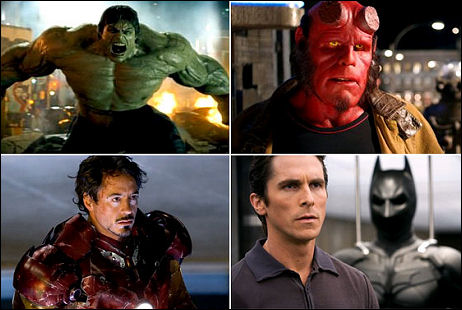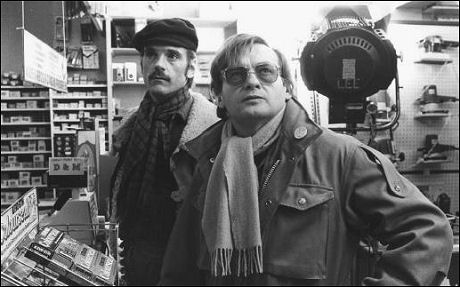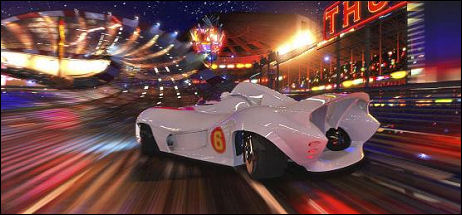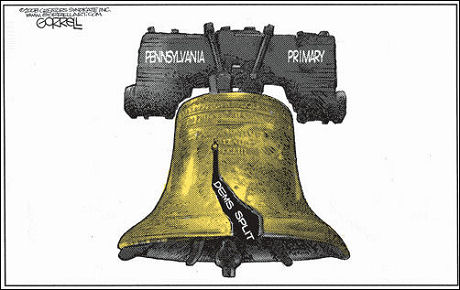Nobody in the world — nobody — throws brilliant, super-analytical lightning bolts from his own incredibly fickle and ferocious orbit like New York Press critic Armond White. Judgment! Judgment! He’s immensely readable, fearless, provocative. Film criticism today would be in a much poorer and less observant state without him. But he’s so alone now. He’s so up there and out there that he’s barely seems to be breathing the same common air or standing on any kind of recognizable terra firma. Not as currently constituted. You know what I mean by that.

In a perfectly reordered universe White would have written and ruled in the ’60s, ’70s and ’80s, when impassioned, super-charged eccentricity was more readily absorbed and in fact valued. In certain ways White’s writing reminds me of Manny Farber‘s, or the Cahier du Cinema scribblings of Francois Truffaut, Bertrand Tavernier and Jean-luc Godard. He’s a fascinating madman. Only White can say stuff that I find almost appalling (but always amusing) in its hermetic and secluded considerations, but at the same make points that I know deep down to be true, or at least worthy of serious consideration.
Read this presumably recent (but undated) White piece called “What We Don’t Talk About When We Talk About Movies,” the title of which reminds me of Jerry Maguire‘s manifesto called “The Things We Think But Do Not Say.” Indeed, it feels like something White wrote in the wee hours, driven by fury and righteousness and disdain. It’s a slam at what he feels are the facile, go-along, hipper-than-thou and (in their own way) sometimes coarse judgments of internet critics. If you don’t feel like reading it, at least read these three paragraphs:
“The new inclination is to write esoteric criticism. Post-Tarantino cinema has wrung the pop aesthetic dry, so the new gods of criticism have made totems of movies so unwatchable and so unappealing that they prohibit the basic pleasure and amazement of moviegoing. Critical babble doesn’t talk about what matters, but it sustains Ten Current Film Culture Fallacies.” Here are White’s fallacies with my reactions:
(1) ‘The Three Amigos’ Inarritu, Cuaron and del Toro are Mexico’s greatest filmmakers while Julian Hernandez is ignored. HE reaction: Julian Hernandez?
(2) Gus Van Sant is the new [Luchino] Visconti when he’s really the new Fagin, a jailbait artful dodger. HE reaction: Is this a reaction to Van Sant’s lost period when he made Finding Forrester and the Psycho remake?

(3) Documentaries ought to be partisan rather than reportorial or observational. HE reaction: Yes, that’s correct — partisan documentaries have made the genre alive and vital and more popular than ever. Adam Curtis‘ The Century of the Self and The Power of Nightmares are sterling examples.
(4) Chicago, Moulin Rouge and Dreamgirls equal the great MGM musicals. HE reaction: Of course they don’t, but Dancer in the Dark and Once were two permutations I was fully delighted and enthused about.
(5) Paul Verhoeven‘s social satire Showgirls was camp while Cronenberg’s campy melodramas are profound. HE reaction: My understanding is that Verhoeven has admitted he went way off the rails with Showgirls, and that he wouldn’t for a second suggest that it deserves to be called “social satire.”
(6) Brokeback Mountain was a breakthrough while all other gay-themed movies were ignored. HE reaction: I don’t know how many gay-themed movies I’ve seen, but Ang Lee‘s film touched me like no other. What’s so bad about believing or saying that?
(7) Todd Haynes‘ academic dullness is anything but. HE reaction: I was thrilled to the bone by I’m Not There. I found it anything but dull. A little academic, okay, but this approach, given the underpinnings of the Dylan phenomenon, fit the subject.
(8) Dogma was a legitimate film movement. HE reaction: Yes, it was. And is. I don’t give a damn what the know-it-alls say about Dogma movies (and how the whole movement was a put-on). To me they carry a feeling of unfettered realism and raw behavioral truth. Too bad if this isn’t to everyone’s liking
(9) Only non-pop Asian cinema from J-horror to Hou Hsiao Hsien counts, while Chen Kaige, Zhang Yimou and Stephen Chow are rejected. HE reaction: I don’t know enough about Asian cinema to have a worthwhile opinion. I only know that certain J-horror films have penetrated deeply, and that the balletic vitality of martial arts films has become, for me, tedious.
(10) Mumblecore matters. HE reaction: Not knowledgable or hip enough to have an opinion.
Back to White’s piece and the final two excerpted graphs:
“These delusions derive from an elitist, art-for-art’s-sake notion. It’s the ‘Smart About Movies’ syndrome allowing bloggers and critics to feel superior for having suffered through Dead Man, Ye-Ye, Gerry, Inland Empire — movies that ordinary moviegoers want no part of and that hardly reflect a community of citizens or the New Millennium’s political stress. It may be a coincidence of social class that most movies are made by people espousing a liberal bent, but it is the shame of middle-class and middlebrow conformity that critics follow each other when praising movies that disrespect religion, rail about the current administration or feed into a sense of nihilism that only people privileged with condos and professional tenure can afford.
“Routine reporting from Cannes and Sundance is another expression of journalists’ perks that encourage a sense of elitism. Fact is, those fests are remote from how most people experience or relate to film culture. Like the weekend grosses list, it promotes a false sense of being informed — not art interpretation or feeling. And festival favorites aren’t discussed in fundamental terms. Critics talk around what’s happening inside Pedro Costa or Apichatpong Weerasethakul movies. Instead, they call the latter ‘Joe — proof of their in-group shamelessness. They’d rather make xenophobic jokes about Weerasethakul’s exotic name than actually deal with the facts of his Asianness, his sexual outlawry and his retreat into artistic and intellectual arrogance that evades social categorization.
“Such hipoisie canonizing is as unhelpful as TV’s pop reviewers who only respect banal Hollywood blockbusters. They also, consequently, discuss the Oscars as a plebiscite that readers must dutifully and mindlessly observe. It’s entertainment — weakly.”








